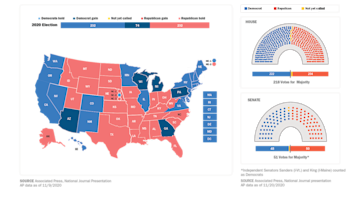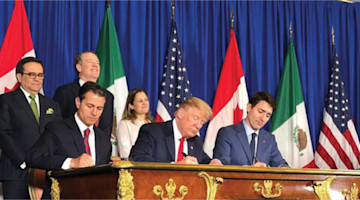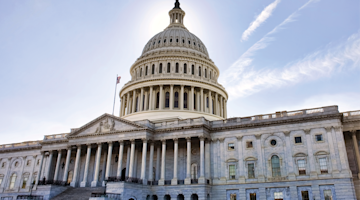Many hoped that when Speaker Nancy Pelosi, D-Calif., called the House back from recess that there would be an opportunity to restart stalled negotiations and pass another round of coronavirus relief. Instead, the House passed a clean $25 billion USPS aid package that is opposed by the Senate and president, leaving little chance for it to become law.
Chief negotiators at the White House, Senate, and House remain deadlocked on a relief package to follow the CARES Act, despite the expiration of extended unemployment benefits and the SBA’s Paycheck Protection Program (PPP) in July. There are reports that Senate Republicans are working on a trimmed-down version of the HEALS Act, its follow-up to the CARES Act. The new package is estimated to be about half the size of the $1 trillion HEALS Act, significantly less than the House version, the HEROES Act, which carries a price tag of approximately $3.4 trillion.
Until now, the Senate has left most of the negotiating to the White House and Democratic leaders, but pressure is intensifying on both parties’ leaders from rank and file members facing tough reelections. The narrow GOP package is likely to include extended unemployment benefits in the $300-400 range, additional funding for restarting PPP loans, aid to schools, and funding for increased coronavirus testing and vaccines. A second round of stimulus checks is not expected to be included.
There’s no telling if this latest attempt to jumpstart negotiations will be successful. Democrats strongly oppose a reduction in extended job benefits and insist any bill must include aid to states. When Congress officially returns from recess, it must tackle government funding levels by September 30, 2020. The elections also dominate the attention of virtually every member of Congress.
And the race is on
Speaking of the campaign season, Trump and former Vice President Joe Biden are now the official major party candidates for president. Republicans wrapped up their convention last week, and Democrats finished a week earlier. Strengthening the domestic manufacturing sector and securing the industrial base are themes in both parties’ platforms but differ on how to address those challenges. Stay tuned for a deeper look into how the candidates propose to deal with issues important to the industry.






